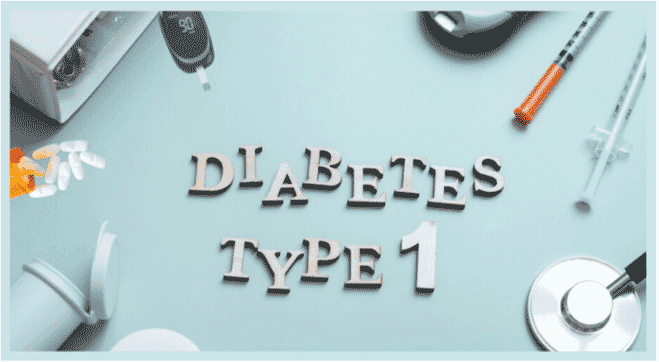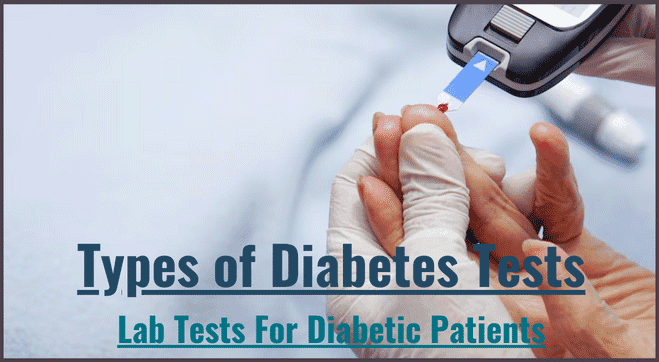What is Type 1 Diabetes?
Type 1 diabetes, otherwise known as juvenile diabetes, is a health condition wherein your pancreas fails to produce adequate levels of insulin hormone. Though also known as juvenile diabetes, this form of diabetes can impact individuals of any age. However, compared to type 2 diabetes, this is quite a rare occurrence, accounting only for 5 to 10% of total diabetes incidences.
Most people identified with this type of diabetes suffer from a compromised immune system wherein their body’s immune system attacks the insulin-secreting pancreatic cells. ?Inquisitive to know how you get type 1 diabetes? Well, The hormone insulin plays a crucial role in ensuring that your body cells get the right glucose levels. Due to insulin imbalance or improper functioning, glucose gets accumulated in your bloodstream rather than reaching your cells. Due to its close linkage to insulin, type 1 diabetes mellitus is also known as insulin-dependent diabetes. It can lead to a host of health hazards that may manifest in varying degrees of symptoms and complications.
Did you know:
- Approximately 8.4 million individuals across the globe were diagnosed with Type 1 diabetes.
- Among the 8.4 million, 1.5 million cases were found in children aged below 14 years, making juvenile diabetes a global concern, especially in lower and middle-income and developing countries.
- Approximately 97,700 children in India are living with Type 1 diabetes mellitus (T1DM).
- As of 2022, a Lancet study reveals around 860,000 individuals have Type 1 diabetes in India. Shockingly, one in six young people perish without diagnosis. By 2040, this number is predicted to nearly double.
- Data from the IDF Diabetes Atlas 2021 highlights India’s record as having the most T1DM afflicted youth globally. However, without a national registry, pinpointing precise numbers remains a challenge.
Major Types Of Diabetes
Understanding the various types of diabetes is essential for effective management. There are three main types:
- Type 1 Diabetes: The body’s immune system mistakenly attacks insulin-producing cells. People with Type 1 Diabetes require insulin injections to control blood sugar.
- Type 2 diabetes: Often linked to lifestyle, this type involves the body not using insulin properly or not making enough. It can be managed through diet, exercise, and medication.
- Gestational Diabetes: Occurring during pregnancy, it can affect blood sugar levels. While temporary, it needs monitoring and can raise the risk of Type 2 Diabetes later.
Symptoms Of Type 1 Diabetes
Type 1 diabetes symptoms serve as crucial indicators for timely diagnosis and management of the condition. You, your elderly family members and even your kids under the age of 10 years are also at risk of this diabetes.
Some of the juvenile diabetes mellitus symptoms include:
- Excessive hunger, thirst and urination (unexplained)
- Blurred vision
- Unplanned weight loss or fluctuations in weight
- A sense of tingling in the feet
- Frequent urination
- Slow healing of wounds
If you or anyone you know has flushed or dry skin, been suffering from constant stomach upsets, nausea, trouble breathing and concentrating, fruity breath these might indicate diabetic ketoacidosis, which is a key complication associated with type 1 diabetes.
As juvenile diabetes symptoms progress quite rapidly too, which warrants on-time diabetic profile test. Your healthcare provider can derive deep insights into the cause of diabetes and suggest the most appropriate treatment, prevention and management roadmap for you,
Causes Of Type 1 Diabetes
The exact reason of juvenile diabetes are yet to be established. It is an autoimmune condition wherein your body’s immune system attacks the insulin-producing cells in the pancreas, which prevents the proper secretion of insulin. Contrary to popular belief, your diet and lifestyle can’t cause this form of diabetes. However, these can play a vital role in managing the same.
Curious to know if type 1 diabetes is hereditary? Well, Type 1 diabetes is known to have a genetic and hereditary linkage too. Some individuals tend to have genes that make them more susceptible to this form of diabetes. However, the mere presence of the gene can’t put you at risk of developing insulin-dependent diabetes. Environmental triggers, such as a Viral infections or any sort of chemical agent, can also be the type 1 diabetes cause in individuals.
Type 1 Diabetes Risk Factors and Complications
Unlike Prediabetes and type 2 diabetes, the risk factors for type 1 diabetes lack adequate scientific evidence. Family history might put you at risk of developing diabetes mellitus type 1. While people of all ages are susceptible to the key types of diabetes, young children and adults are more likely to develop type 1 diabetes mellitus.
Juvenile diabetes symptoms often tend to progress rapidly and may cause a host of health complications, such as:
- Cardiovascular Diseases: Heart stroke, heart attack, and peripheral arterial disease
- Vision Challenges: Blurred vision, reduced eyesight, temporary and permanent blindness, etc.
- Neurological Damage: Any sort of damage to the nerves that leads to numbness symptoms
- Kidney Problems: Diabetes can damage the kidneys, leading to kidney disease.
- Gum Problems: Dental caries, gingivitis, periodontal diseases, oral infections, etc.
- Gynecological Issues: Women with type 1 diabetes mellitus may experience hypogonadism, hyperandrogenism, and PCOS, possibly causing menstrual irregularities.
While these health ailments may arise due to a host of other causes, it is recommended to consult your healthcare provider if you or your loved ones are experiencing any of the above type 1 diabetes complications without any delay. On-time diagnosis can help improve your prognosis and insulin dependent diabetes management.
Type 1 Diabetes Diagnosis and Tests
For diagnosis of Juvenile Diabetes , your healthcare provider may recommend one or any combination of these blood tests.
- Glycated Hemoglobin (HbA1c) Test – With HbA1c Blood Test, your healthcare provider will gauge your average blood sugar level for the last 2 to 3 months. If your A1C is equal to or less than 5.7%, there is nothing to worry about. However, if it is between 5.7% to 6.4%, you are in the prediabetic phase, and anything above 6.4% indicates that you already have type 1 diabetes. This test is an effective tool for type 1 diabetes diagnosis.
- Fasting Blood Sugar & Postprandial Blood Sugar Tests – Popularly known as FBS Test and PPBS Test, these play a crucial role in gauging your blood glucose level before and after a meal. These test results will help your healthcare provider get an approximate idea of your sugar level and suggest treatment measures accordingly. However, these test results may vary depending on the timeframe, your underlying health conditions and your physical parameters during the test and other aspects. An FBS result of 99 mg/dL is considered normal, and anything beyond that indicates prediabetes or diabetes.
- Glucose Tolerance Test – Your healthcare provider will recommend this test to gauge your tolerance level for glucose intake. You will be asked to fast overnight, and the test will be conducted within the period of 2-3 hours of a glucose drink. A reading of 140 mg/dL at 2 hours interval of glucose intake is considered normal.
- Ketone Test: D3HB Test measures ketone levels, particularly important during high blood sugar episodes. Normal range: 0-0.6 mmol/L; high levels suggest diabetic ketoacidosis risk.
- Autoantibody Tests: Detecting these antibodies helps in confirming the diagnosis and distinguishing Type 1 Diabetes from other types.
Based on your specific health parameters, risk and complications, you will be suggested an appropriate diabetes testing modality and treatment.
Type 1 Diabetes Treatment & Management
The diabetes mellitus type 1 treatment is decided based on your blood glucose reading, your health profile, and your risks and complications to diabetes.
Some of the key juvenile diabetes treatment modalities include:
Medical Treatments
- Insulin Administration – You will be suggested to take insulin either through a syringe, insulin pen or insulin pump. Since your body’s internal insulin production and functioning are compromised, your type 1 diabetes management relies on the efficacy of your external insulin intake.
- Medications – Your doctor will recommend oral medications to keep your blood sugar level, insulin and glucagon hormones in check.
Home Remedies
- Healthy Diet: While there is yet to be any other definitive treatment for type 1 diabetes, there are ways you can manage the same. Since it’s an autoimmune condition, you can’t prevent type 1 diabetes from occurring. But you can follow a healthy diet. A balanced diet rich in whole grains, lean proteins, fruits, and vegetables helps regulate blood sugar levels. Monitoring carbohydrate intake and spreading meals throughout the day can prevent spikes.
- Regular Exercise: Appropriate exercise regimen and better lifestyle choices to manage the type 1 diabetes symptoms. Engaging in physical activity improves insulin sensitivity, aids weight management, and enhances overall well-being. Aim for a mix of aerobic and strength training exercises.
- Meal Timing: Consistent meal timings support stable blood sugar levels. Eating at regular intervals helps maintain insulin balance and prevents sudden spikes or drops.
- Consistent Health Checkups: Opt for Periodic health checkups packages, especially those pertaining to blood glucose levels, are highly recommended.
Note From HealthcareOnTime
Though rare, type 1 diabetes can impact you and your loved ones at any age. The key here is to watch out for the noticeable symptoms and seek immediate diagnostic and treatment measures to improve your and your loved ones’ prognosis and quality of life.
We at healthcareOnTime are committed to offering you at-home blood testing facilities that are easy, convenient, and hassle-free. Take control of your diabetes by choosing full body checkups packages periodically.
Sources
Ref Links:
- https://www.cdc.gov/diabetes/basics/what-is-type-1-diabetes.html
- https://www.ncbi.nlm.nih.gov/pmc/articles/PMC6748880/
- https://medlineplus.gov/ency/article/000305.htm
- https://diabetes.org/diabetes/type-1
- https://www.medicalnewstoday.com/articles/323729
- https://www.thelancet.com/journals/landia/article/PIIS2213-8587(22)00218-2/fulltext
- https://www.ncbi.nlm.nih.gov/pmc/articles/PMC4413385/
- https://indianexpress.com/article/lifestyle/health-specials/type-1-diabetes-population-double-india-lancet-study-8165899/
- https://www.thelancet.com/journals/lansea/article/PIIS2772-3682(22)00014-2/fulltext











